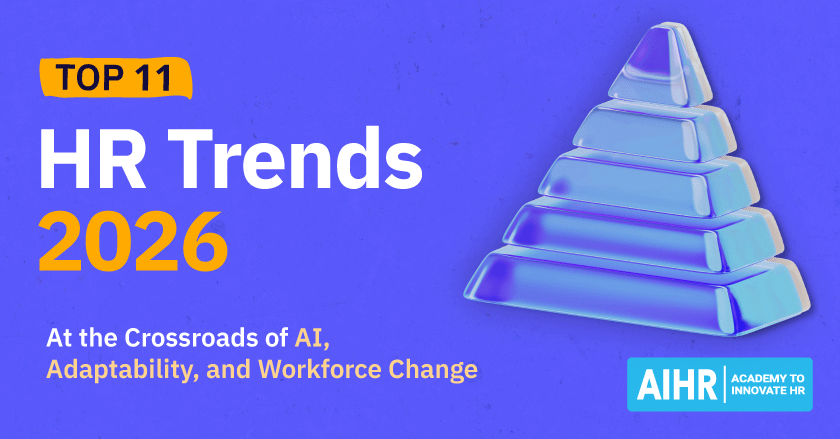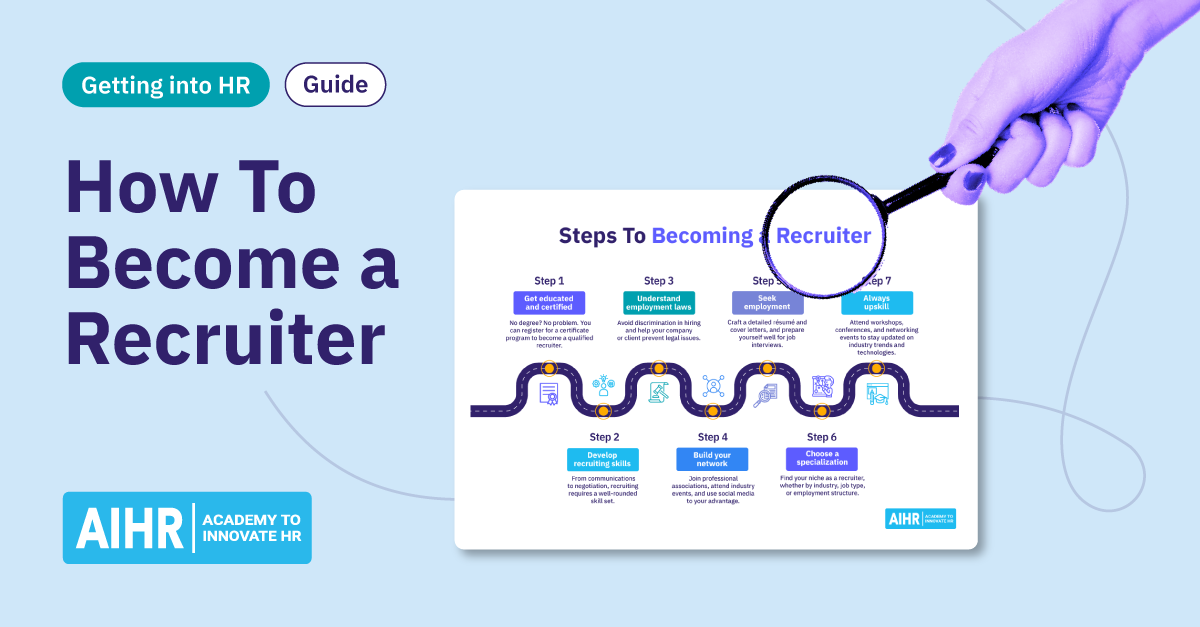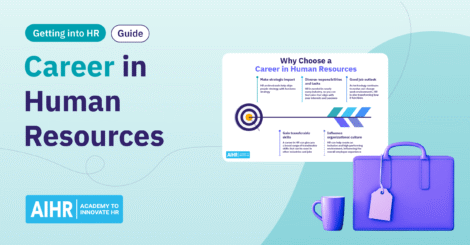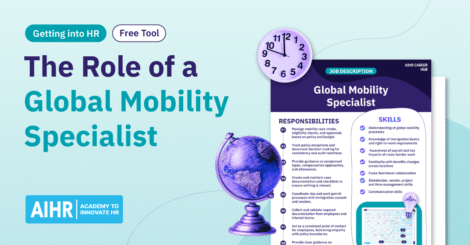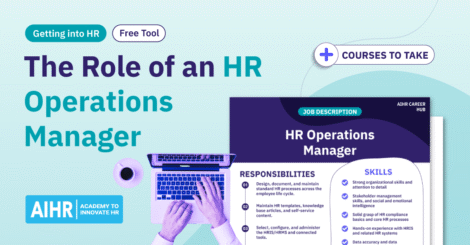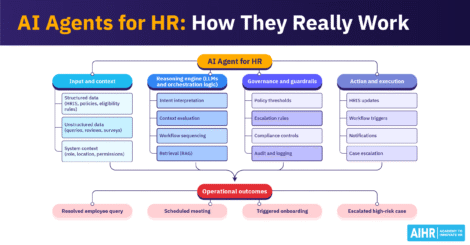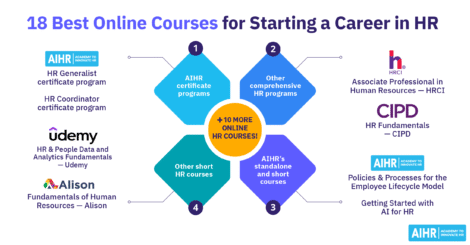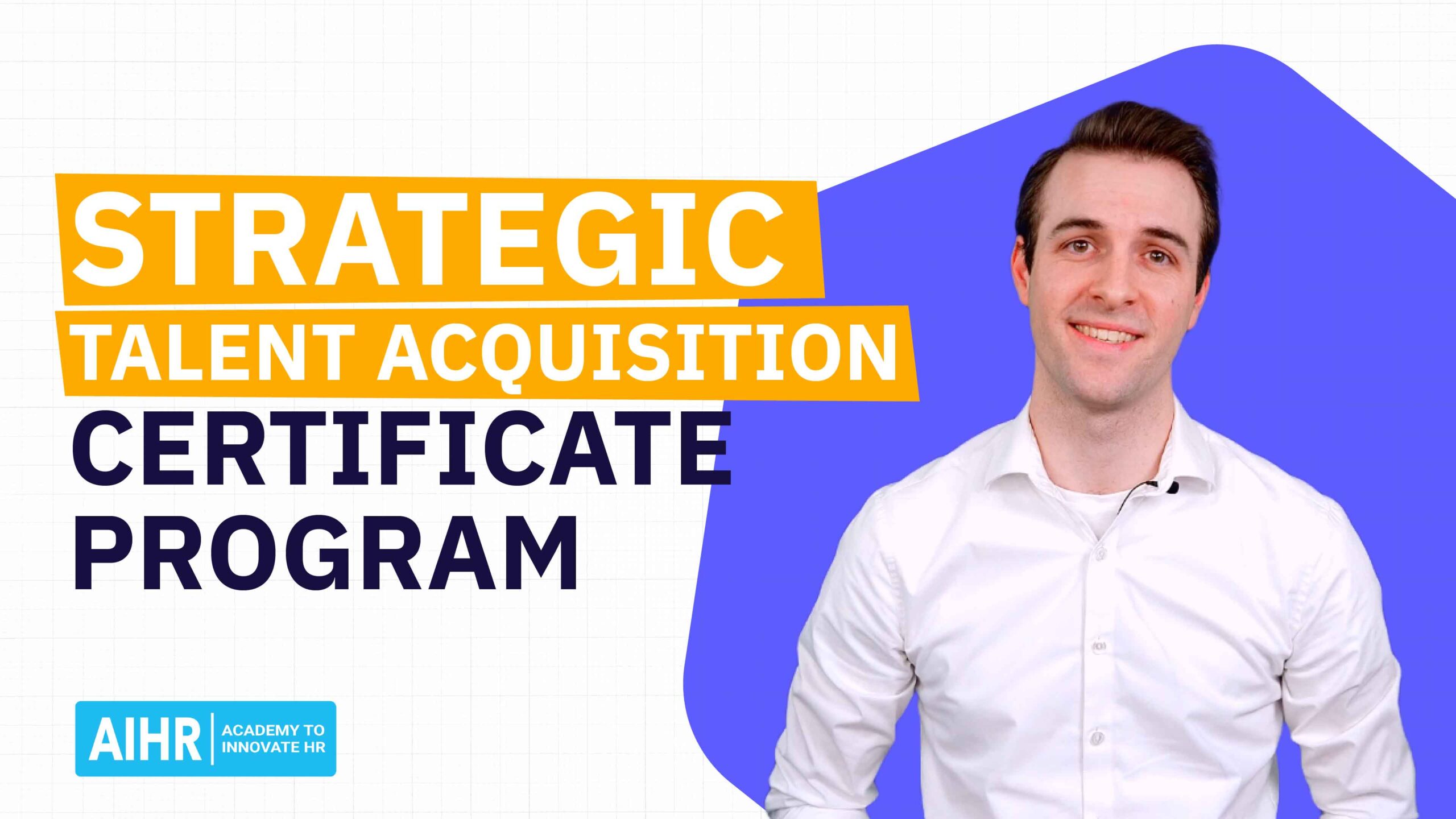To become a recruiter, you must be interested in a dynamic career that combines business acumen and a passion for helping people. This will enable you to match skilled candidates with suitable companies while ensuring an efficient hiring process.
Robert Half’s State of U.S. Hiring Survey revealed that 57% of companies plan to introduce new full-time positions in the first six months of the year. Additionally, 39% anticipate hiring for vacated positions, and 67% expect to hire contract employees as part of their staffing strategy.
According to Jobvite’s Employ Recruiter Nation report, HR decision-makers are highly optimistic about the recruiting landscape. An incredible 86% of talent practitioners stated that they were confident about the future of talent acquisition. 47% of talent teams planning to increase their recruiting spending also intend to increase their budgets for new recruiting team hires.
This means more job opportunities for recruiters.
Contents
What is a recruiter?
What does a recruiter do?
A recruiter’s salary
How to become a recruiter
What is a recruiter?
A recruiter connects employers looking to hire and potential employees looking to be hired. They source, identify, screen, and interview candidates, negotiate benefits and salaries with them, and guide candidates throughout the application process.
There are two types of recruiters: internal and external. Companies employ internal recruiters to help them fill open positions, while staffing agencies hire external recruiters or headhunters to recruit candidates for various clients.
A recruiter’s role within a Human Resources (HR) team varies, depending on company size or structure. Small companies with up to 49 employees may manage the entire hiring cycle, from sourcing and screening candidates to making job offers. Due to limited resources, recruiters in these companies may use free resources and employee referrals to find applicants.
Recruiters at medium-sized enterprises with 50 to 250 staff may have specialized functions. They perform duties like sourcing candidates or conducting initial interviews. They also work with HR managers on more extensive talent acquisition initiatives, like developing employer branding strategies or participating in career fairs.
In large organizations with over 250 employees, recruitment involves more specific functions, such as sourcing, screening, and interviewing job seekers. Those responsible for these functions are generally recruitment specialists who collaborate with HR managers to fine-tune recruitment procedures. For example, if you’re a recruiter at a tech company, you may concentrate on sourcing candidates with specific tech skills.
As a recruiter, your career path can stretch from three to 15 years and involve any of the following roles:
- Senior recruiter or team leader: This person typically handles a team of recruiters, delegates tasks, and ensures the team meets its hiring goals.
- Recruiting manager: This is a middle-management role that entails managing the recruitment budget, leading the recruitment function, or handling complex hires.
- Recruiting or talent acquisition director: This is a senior position that reports to the VP of HR and is responsible for the company’s overall recruitment strategy and direction.
What does a recruiter do?
Acting as a headhunter for one organization or different clients, a recruiter’s job involves strategic planning, administrative duties, and interpersonal communications.
A recruiter’s responsibilities and qualifications usually include:
- Collaborating with hiring managers to understand the qualifications and requirements for open positions, such as skills, experience, and culture fit
- Crafting job descriptions that accurately reflect available vacancies
- Posting job listings on the company’s career pages, job boards, and social media platforms
- Sourcing candidates by searching job boards and online databases, attending industry events, using LinkedIn, and looking through employee referrals
- Contacting suitable candidates by phone, email, or direct message to gauge their interest
- Screening applications to shortlist candidates with relevant qualifications and experience
- Conducting initial interviews with candidates to evaluate their skills and suitability and joining panel interviews to assess applicants’ skills, experiences, and qualifications
- Participating in salary and benefits negotiations with selected candidates
- Assisting with the onboarding process to ensure a smooth transition for new hires
- Staying informed about labor industry trends, salary benchmarks, and employment laws in order to make informed hiring decisions
- Contributing to employer branding initiatives that enhance the company’s image in potential candidates’ eyes.
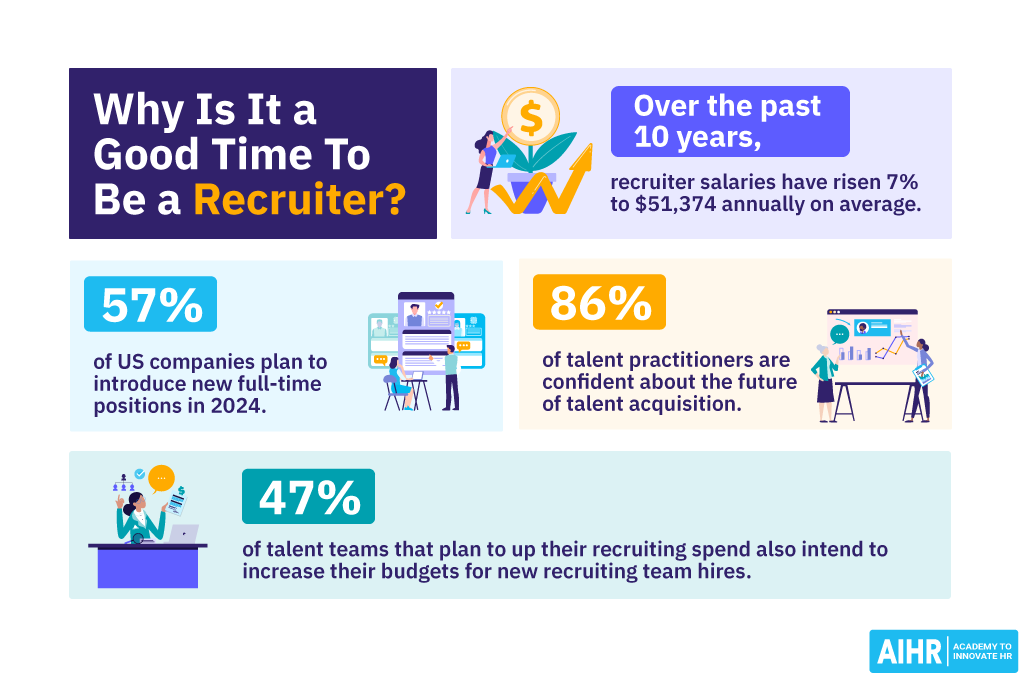
A recruiter’s salary
How much a recruiter earns is typically based on education, years of experience, industry, and qualifications. Indeed estimates that the average recruiter base salary in the US is approximately $55,679 annually, while according to Glassdoor, the average total annual pay for an experienced recruiter is around $103,911.
The average pay also varies by city and state. Glassdoor states that the average annual salary for recruiters in Chicago is just above $63,952, while their New York counterparts earn over $81,377 a year.
According to Zippia, the average annual recruiter salaries in Washington, Rhode Island, and Massachusetts are the highest in the US. At the same time, South Carolina, Mississippi, and Indiana have the lowest average annual recruiter salaries.
Also, the highest-paying industries for recruiters are technology, finance, manufacturing, healthcare, and government.
How to become a recruiter
Interested in becoming a recruiter? Here’s how:
Step 1: Get educated and certified
While no specific educational background is needed to work as a recruiter, most recruiters have a degree in HR, business administration, psychology, or a related field.
You also don’t necessarily need a bachelor’s degree; you can become a certified recruiter through HR certificate programs:
- Sourcing & Recruitment (AIHR): Learn about candidate sourcing and screening, employer branding, and the entire hiring process.
- Strategic Talent Acquisition (AIHR): Learn about talent acquisition strategy, sprint recruiting, candidate experience, and recruitment analytics.
- Certified Professional (SHRM-CP): Focus on recruitment to build a strong foundation of HR practices that will help you become a well-rounded recruiter.
- Certified People Sourcing Professional (Sourcing Certifications): Learn sourcing techniques critical to effective recruitment practices.
AIHR has a practical career map tool to view the various HR positions and to help you plan your career path.
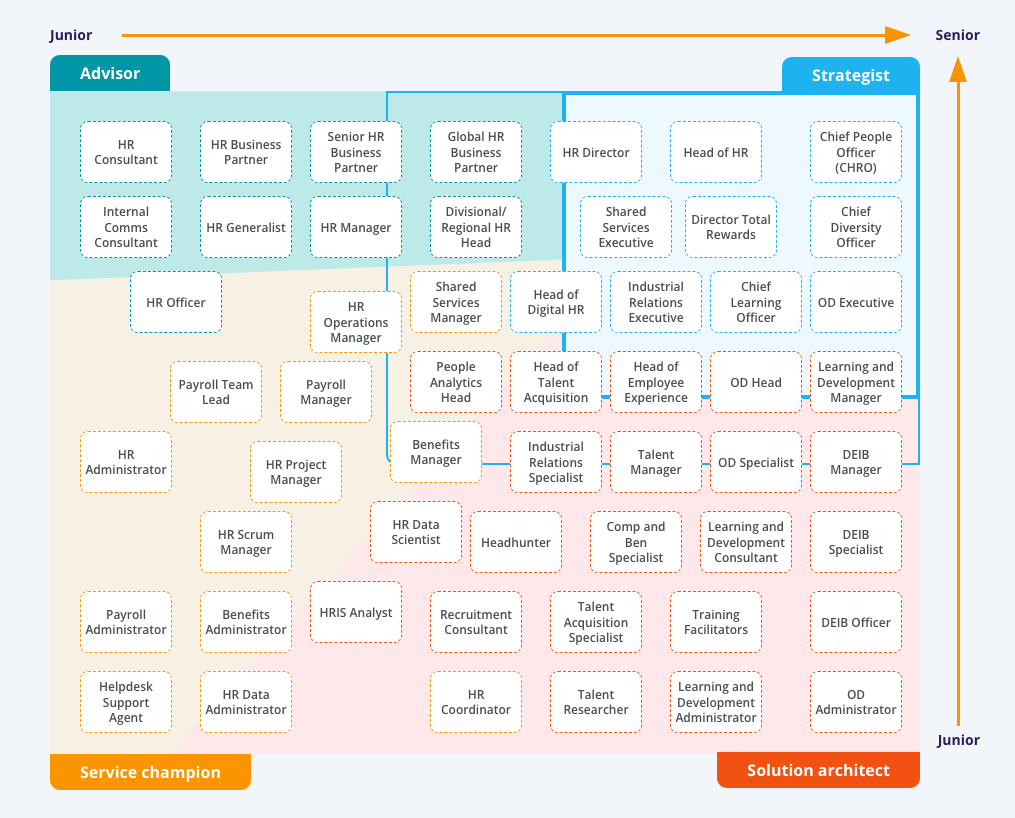
Step 2: Develop recruiting skills
To be a successful recruiter, you must have the following set of skills:
1. Communication
- Write compelling job postings to attract top talent
- Explain job descriptions and company culture to candidates
- Ask insightful questions during interviews to assess candidates’ skills
- Give feedback to both candidates and hiring managers.
2. Sourcing
- Identify the best talent using job boards, professional networks, social media platforms, or employee referrals
- Understand candidate personas by determining the ideal candidate’s background, skills, and motivations to help target sourcing efforts.
3. Screening
- Review résumés and cover letters to evaluate candidates’ skills and experience quickly and whether these align with the job description
- Conduct phone interviews to discuss candidates’ qualifications and shortlist the best applicants
- Using personality and skill assessments to evaluate each candidate’s suitability for an open role
- Conduct background and reference checks.
4. Interviewing
- Ask candidates questions about their experience to determine their strengths and weaknesses
- Practice active listening and closely observe their answers and nonverbal cues
- Build rapport so candidates feel comfortable sharing their work experiences and asking questions.
5. Employer branding
- Develop a strong employer value proposition (EVP)
- Establish and maintain a strong social media image by showcasing company culture, employee stories, and career opportunities
- Create positive word-of-mouth about your company as a desirable employer.
6. Interpersonal
- Help candidates feel comfortable sharing their experiences and goals
- Understand the hiring manager’s needs and find the perfect candidate based on the role’s requirements
- Foster relationships with professionals in your network to help source potential candidates.
7. Organizational
- Manage several job openings at different stages of the hiring process
- Monitor candidate applications, résumés, and interview notes
- Meet deadlines and stay on top of hiring timelines
- Utilize project management tools to help you prioritize tasks and maximize efficiency.
8. Negotiation
- Secure a competitive salary and benefits package for the candidate
- Answer questions and concerns the candidate has about the offer
- Draft a job offer that satisfies both the employer and the candidate.
9. Technical
- Use an Applicant Tracking System (ATS) to manage applicants and schedule interviews
- Use social media to build employer branding and source candidates
- Use video conferencing tools to conduct remote interviews
- Use job boards to post job openings.
You can acquire these skills through hands-on experience, training programs, workshops, and online HR courses.
Understand employment laws and regulations
Recruiters must have a solid understanding of relevant employment laws and regulations to avoid legal issues. In the US, for instance, the Civil Rights Act (CRA) of 1964 prohibits discrimination against applicants based on protected characteristics like sex, race, religion, color, and national origin.
At the same time, the Age Discrimination in Employment Act of 1975 prohibits discrimination against persons aged 40 or older, while the Americans with Disabilities Act prohibits discrimination against candidates with disabilities.
Furthermore, the Pregnancy Discrimination Act mandates that organizations must not discriminate against applicants due to pregnancy, childbirth, or any associated medical conditions.
Finally, the Equal Employment Opportunity Commission (EEOC) website explains EEO laws, regulations, and best practices and offers resources and guidance for employers and employees.
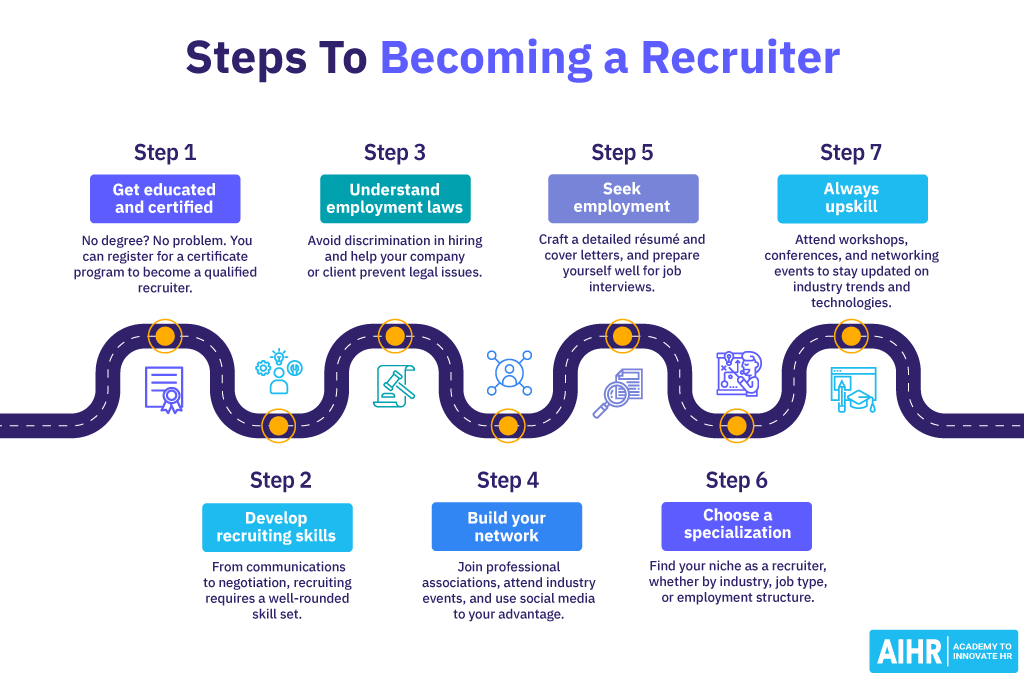
Step 3: Gain relevant experience
Any professional experience in HR, communications, customer service, or sales can help you to become a recruiter. Skills gained in these areas will assist you in developing networking, relationship-building, and interviewing skills.
Start with an HR internship to learn the basics of job posting, interviewing, and employee management. You can also volunteer to assist recruiters in your company, a non-profit, or a community organization. If you are able, work as a recruiting coordinator or in a similar position to understand the hiring process.
Step 4: Build your network
Networking is crucial in recruiting. It can help you expand your network and connect with potential candidates and clients. One way to get started is to join professional organizations and associations like the American Staffing Association (ASA), National Association of Personnel Services, and NPAworldwide.
You should also attend recruitment and staffing-related industry events and build relationships with recruitment professionals to access more job opportunities, employers, and clients. In addition, you can leverage social media platforms like LinkedIn to connect with candidates and other industry professionals.
Step 5: Seek employment
Once you have gained the relevant skills and experience, you can apply for recruiting positions with companies, staffing agencies, or executive search firms. Your résumé should include all your relevant skills, experience, certifications, and credentials. Carefully read each job description and customize your résumé and cover letter to match the employer’s requirements.
List all your recruitment-related work experience, including internships or volunteer positions. Prepare for job interviews by researching employer details and commonly asked questions in recruiter interviews.
Step 6: Choose your specialization
Some recruiters specialize in a particular vertical, role, or skill set. Specialization can help you develop expertise in a particular niche and make you more marketable to clients and candidates in that industry:
Industry specialization
- Tech recruiters specialize in filling tech roles, so knowledge of specific tech skills and trends is critical
- Healthcare recruiters understand the healthcare industry’s unique needs, from nurses and doctors to medical technicians.
Job type specialization
- Executive recruiters or headhunters cater to high-level positions, conducting confidential searches for CEOs, CFOs, and other senior executives
- Engineering recruiters specialize in technical roles, identifying qualified engineers across various disciplines.
Employment structure specialization
- Staffing agencies employ agency recruiters and work with various clients across different industries to fill their job openings
- Temporary and contract recruiters specialize in placing candidates in temporary, contract, or freelance positions
- Niche recruiters concentrate on highly specialized roles within a particular industry or that require unique skill sets.
Step 7: Always upskill
Recruiting is dynamic, so make sure you stay updated on industry trends and technologies. Research online resources, networking groups, and professional organizations for best practices. Regularly upskill, enroll in workshops, and participate in conferences and networking events to constantly improve your skills as a recruiter.
Enroll in an HR certificate program
While a psychology or business administration (BA) degree offers valuable information, the field of HR is now more open to welcoming HR-certified individuals:
- Learn practical skills: HR certificate programs provide practical skills HR professionals need, such as recruitment, compensation, employee relations, and legal compliance. A bachelor’s degree in BA might cover these areas, but a good certificate program deep-dives into their practical application.
- Ensure legal compliance and employee protection: HR certificate programs provide up-to-date information on employment laws, regulations, and best practices.
- Fast-track your HR journey: Compared to a four-year degree, HR certificate programs can be completed much more quickly, usually within a semester or a year.
- Enjoy accessibility and affordability: HR certificates are also more accessible and affordable than a degree. This benefits those who want to change careers, have limited budget or time, and want to add HR skills to their existing qualifications.
- Complement your existing skills and experience: HR certificates can complement existing degrees or work experience. For example, someone with a marketing background can become an HR generalist, or someone with a finance background could pursue a certificate in compensation and benefits.
To sum up
Companies need recruiters to attract talented workers to meet their business goals. From sourcing candidates to onboarding new hires, recruiters are responsible for an effective and streamlined hiring process.
Becoming a recruiter might be the right profession for you if you’re passionate about helping people fulfill their career goals and matching companies with the right individuals. If you’re concerned about career progression, remember that being a recruiter can lead to more senior positions, such as recruitment director or VP of HR.


